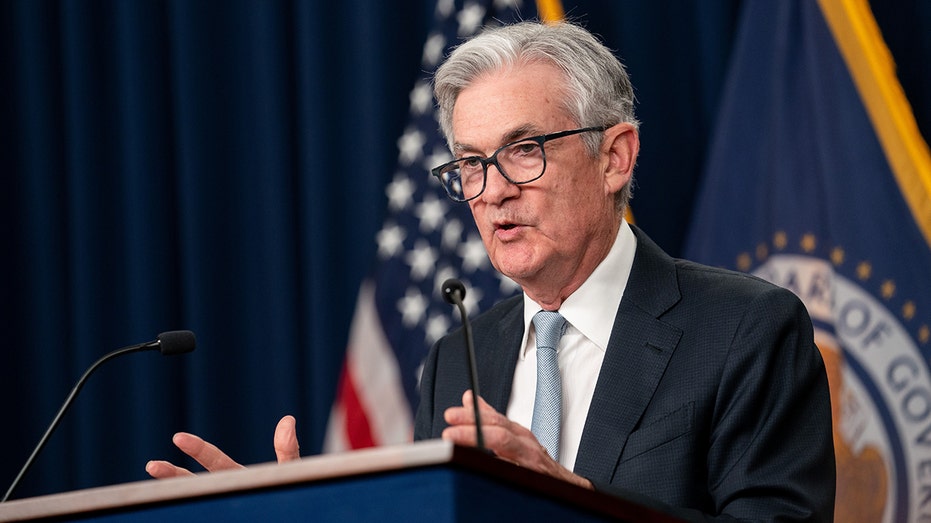Inflation ran hotter than expected at the start of the year, pouring cold water on Wall Street's hopes for an imminent interest-rate cut by the Federal Reserve.
The consumer price index, a broad measure of the price of everyday goods including gasoline, groceries and rent, rose across the board in January, rattling investors and triggering a broad market sell-off.
The surprisingly strong inflation data nearly eliminated the already-slim odds of a March rate cut, and also further reduced the likelihood of a May cut to just 30%, according to the CME Group's FedWatch tool, which tracks trading.

Federal Reserve Chair Jerome Powell attends a press conference in Washington, D.C., on Nov. 2, 2022. (Liu Jie/Xinhua via / Getty Images)
"Core CPI for January was higher than expected and keeps a Fed rate cut ‘off the menu’ for now," said Bryce Doty, senior vice president at Sit Investment Associates. "The real Fed fund rate is still restrictive, but that likely won’t be enough to get the Fed to lower rates until there is more certainty that inflation is fully contained."
The Federal Reserve signaled it was closely watching the report for evidence inflation is continuing to subside as policymakers try to determine what comes next for interest rates in 2024.
Although central bank officials opened the door to cutting interest rates this year during their January meeting, they have pushed back against the market's aggressive expectations.
Chair Jerome Powell told reporters after the meeting that a March rate cut is likely off the table as policymakers do not have enough confidence that inflation is on the path back to 2%.
"Based on the meeting today, I would tell you that I don’t think it’s likely that the committee will reach a level of confidence by the time of the March meeting to identify March as the time to do that. But that’s to be seen," Powell said at the time.
People shop in the food section of a retail store in Rosemead, California, on Jan. 19, 2024. (Frederic J. Brown/AFP via / Getty Images)
Although inflation has fallen considerably from a peak of 9.1%, progress toward the Fed's 2% target has slowed noticeably in recent months. Inflation rose 0.3% in January from the previous month and is up 3.1% from the same time last year; both of those figures are higher than expected.
Other parts of the report also indicated that inflation has been slow to retreat. Core prices, which exclude the more volatile measurements of food and energy, climbed 0.4% – the largest monthly increase since April 2023. It rose 3.9% annually. Both of those figures are slightly higher than estimates.
"The final mile toward the Fed’s 2% target was always going to be slow, erratic and frustrating," said Seema Shah, chief global strategist at Principal Asset Management. "What today’s report does emphasize, however, is that without a cooling of the labor market and economy, inflation progress is likely to come to a halt. A March cut is completely off the agenda, but May could still be in play if economic activity plays ball and finally starts to show the impact from prior Fed tightening."

